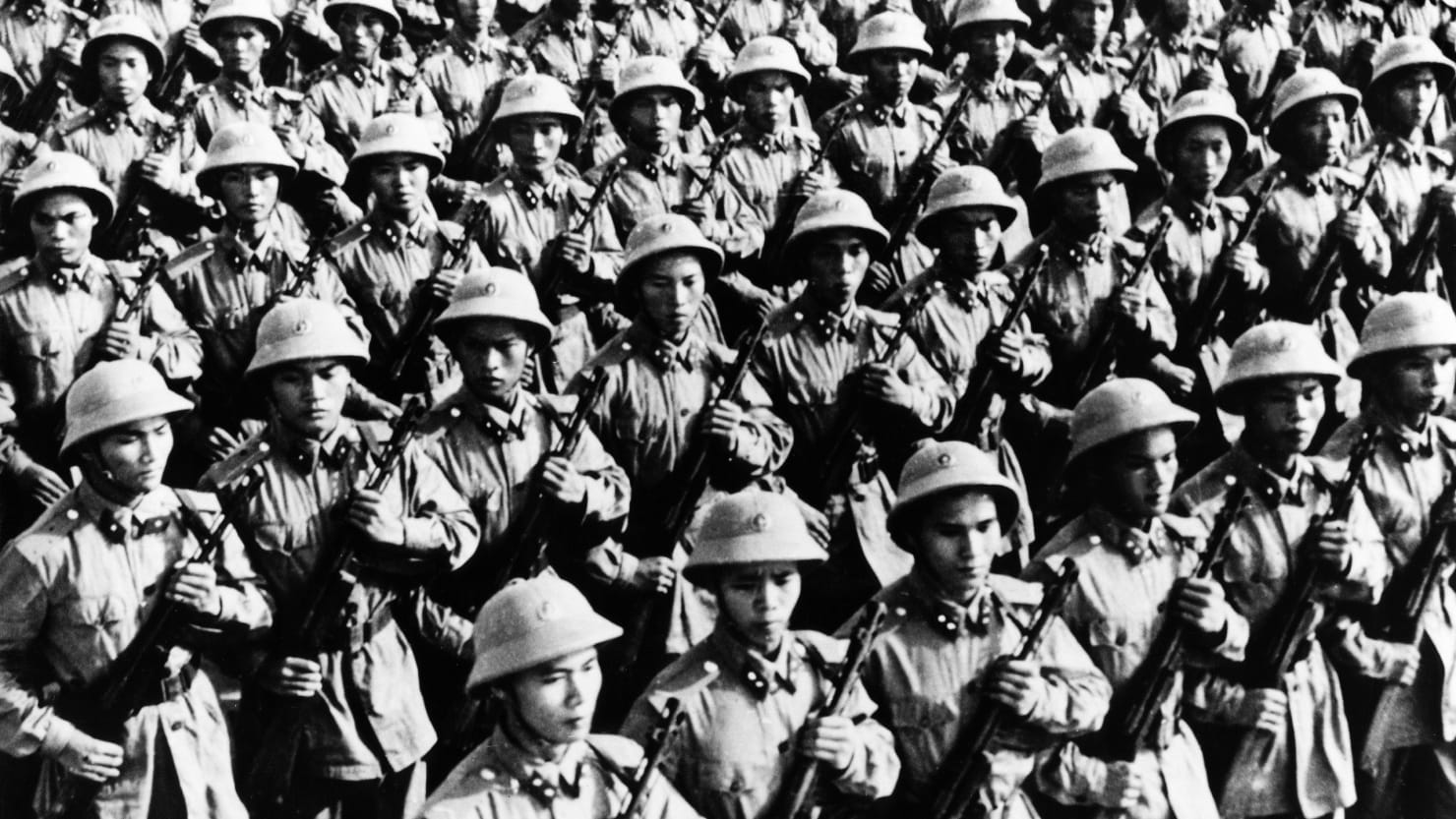
< http://sachhiem.net/printemail.php?id=2379 >
Bây giờ người Mỹ mới nhận ra thiên tài của Việt Nam thì hơi muộn
Subject: ***_Người_Mỹ_nhận_ra _thiên_tài_Việt_Nam_!
From: Việt Dân
Date: Sat, November 18, 2017 8:02 am
Bây giờ người Mỹ mới nhận ra thiên tài của Việt Nam thì quá muộn !
Việt Nam kỳ này đánh giặc ngoại xâm 1946-1975 bằng cả thiên tài chính trị và quân sự - (không phải hễ có chính nghĩa thì tất nhiên phải thắng ...)
Thiên tài tổng thể chiến lược - chính trị lẫn quân sự -
đứng đầu là cụ Hồ .
Dưới đó là nhân tài chính trị Lê Duẩn, người phụ trách chiến lược giải phóng miền Nam, giữ vững chủ quyền đối với phương Bắc, và chỉ đạo chớp thời cơ thống nhất đất nước 1975 - không để cho bọn nước lớn kịp trở tay, phá bĩnh, ngăn cản !
Tổng thể chiến lược chiến tranh toàn quốc là do thiên tài quân sự Võ Nguyên Giáp .
Cả 3 nhân vật này đều bị việt gian bôi nhọ
- *** điều này càng làm rõ tầm quan trọng quyết định của họ .***
Người Mỹ đã công tâm phán xét lịch sử của Mỹ tại Việt Nam và công nhận thiên tài chiến lược của dân ta.
Còn người Việt thì sao ...?
xông lên đạp đổ ngụy quyền
cút giặc về nước, nối liền giang san
lịch sử kia, chớ ngụy bàn ;
đời đời truyền tụng : ngút ngàn oai linh !
sao đành chối (chính) nghĩa dân mình ?
đứng lên đuổi giặc - chứng minh : tội gì ?
Việt Dân
https://www.thedailybeast.com/the-genius-of-north-vietnams-war-strategy
The Genius of North Vietnam's War Strategy

The most admirable thing about this fall's PBS series on the Vietnam War is the way in which it forces American ...
The most admirable thing about this fall's PBS series on the Vietnam War is the way in which it forces American audiences to confront the genius of North Vietnam's strategy.
James A. Warren
11.18.17 12:00 AM ET
It isn’t every day that David defeats Goliath. That Hanoi was able to frustrate America’s designs for South Vietnam for so long, and ultimately force the United States to withdraw, has to go down as one of the most astonishing feats in the history of warfare. How, then, can we understand this extraordinary event?
A good place to start is with the recognition that Hanoi’s strategists never imagined they could force an end to America’s involvement through battlefield victories, despite their rhetoric to the contrary. They could not hope to match the Americans’ military power. But they believed—correctly—that they were more than a match for the Americans and their allies in the realms of political power and organizational skill. In a civil war (?, civil war ? a civil war against American war machines and its slave troops - foreign and domestic ? nth-fl) between people who had suffered from a century of colonial exploitation, political power—or as the communist propagandists used to say, “the power of the masses, directed by the party”—proved far more effective that the conventional military strength the Americans brought to bear against it.
Hanoi “dismissed the assumption that the principal and primary means test of success must be military combat,” observes former State Department officer Douglas Pike, one of the most perceptive American students of the revolutionary forces in Vietnam. “They realized . . . that it might be possible to achieve a change of war venue and determine its outcome away from the battlefield.”
The communists’ primary assets in their long war against the United States were, first, a distinctly Vietnamese variant of Mao’s highly flexible protracted war strategy, designed to wear down the American people’s will to fight, even as it permitted the buildup of a powerful conventional army in North Vietnam. The second asset was a remarkably dynamic and cohesive political organization within South Vietnam that exploited the many vulnerabilities of the U.S.-South Vietnamese partnership. That organization, the National Liberation Front, enjoyed wide support among the rural peasantry that comprised about 90 percent of South Vietnam’s population of 16 million.
Finally, the communists possessed—in historian Jeffery Record’s phrase—“a superior strategic grasp of the political and social dimensions of the struggle.” It could well be said, in fact, that the Americans were not so much out-fought in Vietnam as out-thought. As the commander in chief of communist military forces Vo Nguyen Giap often remarked, American military forces were superior to his own by virtually every measure, but the Americans’ strategic assessments of the nature of the war, of their own strengths and weaknesses and those of their adversaries, were markedly inferior to those of the Hanoi and the southern insurgency in directed from afar.
...
______________
https://www.youtube.com/watch?v=g9LPJmprMy8
Sông Lô - NSND Quý Dương và dàn hợp xướng
Trang Fanpage của NSND Quý Dương: http://www.facebook.com/nsndquyduong

